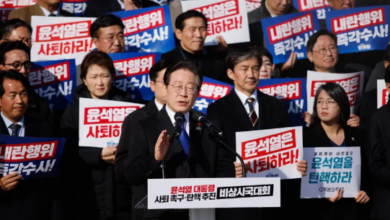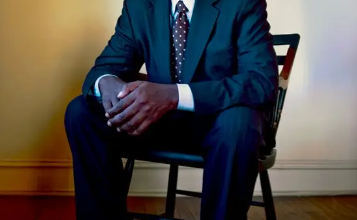Support for Venezuela’s opposition is dwindling at OAS

BOGOTA, Colombia — Venezuela’s opposition suffered a rebuff Thursday as 19 members of the Organization of American States backed a proposal to remove its envoy from the regional forum for political and economic issues.
Although the proposal failed to get the two-thirds marjority, or 24 votes, needed to be put on the agenda of the OAS General Assembly being held in Lima, Peru, it was a tough blow for opponents of Venezuelan President Nicolas Maduro.
More than half of the organization’s 35 members voted for the resolution and many others abstained, signaling a growing lack of support in the region for the faction of Venezuela’s opposition led by Juan Guaidó. Only four states stood with the Guaidó envoy.
The resolution, drafted by the island nation of Antigua and Barbuda, would have stripped recognition of Gustavo Tarre as Venezuela’s permanent representative at the OAS on the grounds that Guaidó is not a head of state.
“Guaidó’s international support has decreased substantially,” said Mariano de Alba, a Venezuela analyst at the International Crisis Group. “The opposition is in dire need of a new leadership that is able to coordinate discontent within the country and build leverage so the government has an interest in negotiating with them.”
Guaidó, then head of Venezuela’s National Assembly, challenged Maduro’s claim to the presidency in 2019 following his victory in an election that was widely dismissed by international observers as fraudulent.
Guaidó formed an “interim government” that was recognized by the U.S. and dozens of other countries, but it had no control over other Venezuelan institutions and failed to weaken Maduro’s socialist administration.
At the time, a majority of the OAS members voted to give Venezuela’s seat to a representative picked by the National Assembly, which was then controlled by the opposition.
But support for Guaidó has dwindled as his efforts to remove Maduro through protests, international sanctions, a military uprising and negotiations failed. . Some nations have recently decided that they can gain more from to re-establishing ties with the Maduro government.
On Thursday, countries that once supported Guaidó voted to remove his envoy included Colombia, Honduras, Chile, Argentina and Peru, all with left-of-center governments, while Brazil and Ecuador, which have conservative leaders, abstained. Guaidó’s envoy received the support of only Canada, the United States, Guatemala and Paraguay.
Colombia was once a key ally of Guaidó, but it recently elected a leftist president, Gustavo Petro. He is seeking Maduro’s support in peace talks with Colombia’s largest remaining rebel group, the National Liberation Army, known as the ELN, which also operates in Venezuela.
“The Colombian government has prioritized restoring ties (with Maduro) given the vast economic potential of gaining access to the Venezuelan market,” De Alba said. “Moreover, Petro needs Maduro’s support for a successful negotiation with the ELN.”
Source link





